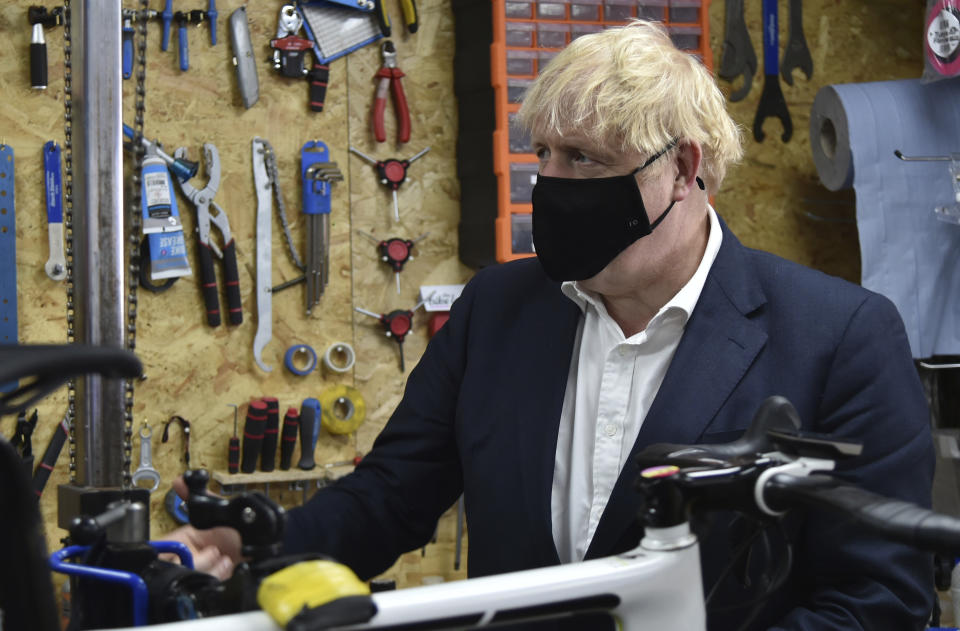Negligence to blame for coronavirus infection spike in Germany, says health chief

Negligence is to blame for Germany’s steady rise in new coronavirus infections, one of its senior health officials has said.
Lothar Wieler, the head of the Robert Koch Institute (RKI), the government agency responsible for disease control, said Germans had become careless about social distancing.
His warning came as several European countries experienced COVID-19 spikes.
Wieler said on Tuesday: “The new developments in Germany make me very worried. The rise has to do with the fact that we have become negligent.”

Germany’s number of daily new cases almost doubled on Tuesday to 633, something the RKI blamed on increased contact between people in the workplace and at parties.
According to Johns Hopkins University, Germany has had more than 207,000 coronavirus cases and more than 9,100 deaths.
It had been praised for its initial response to the pandemic, but last month its R rate jumped after an outbreak at a meat-packing factory.
Germany has advised its citizens to avoid travelling to several regions of Spain, which has seen a huge spike in cases, many of them blamed on young people gathering in large groups.
And Belgium has halted its coronavirus easing plan and brought in new social distancing measures after a surge of infections.
It is now averaging 279 new cases a day following a 71% rise in COVID-19 infections in the past week, according to figures released on Monday.
Its prime minister, Sophie Wilmes, said that from next Wednesday contacts outside every household will be limited to the same five people over the next four weeks.
"Our aim is clear – avoid another full lockdown," she said.

On Tuesday, UK prime minister Boris Johnson defended his government’s decision at the weekend to impose a 14-day quarantine on travellers from Spain, after 900 new cases were reported there on Friday.
"It's vital that when people are coming back from abroad, if they are coming back from a place where I'm afraid there is another outbreak, they must go into quarantine," he said.
Spain's prime minister Pedro Sanchez described the restrictions on travel to the country as an "error", saying Britons would be safer in Ibiza than at home.
He pointed out that the upsurge in coronavirus cases is focused in two regions, Catalonia and Aragon, adding: "In most of Spain, the incidence is very much inferior to even the numbers registered in the United Kingdom."

In the UK, there have been several recent outbreaks and warnings that the rate of new COVID-19 cases has stopped declining, and Johnson said the country must be “vigilant” to avoid a second wave.
“The most important thing is for everybody in all communities to heed the advice, to follow the advice, not to be spreading it accidentally and get it right down, and we’ll be able to ease the restrictions across the country,” he said on Tuesday.
“But clearly we now face, I’m afraid, the threat of a second wave in other parts of Europe and we just have to be vigilant and we have to be very mindful.”
From 1 August, there will be a number of changes to lockdown in England - employers will have the power to decide if staff should return to the workplace and casinos, bowling alleys and skating rinks can reopen.
Wedding receptions will be allowed to include up to 30 people including the couple, guests, staff and officials.
Coronavirus: what happened today
Click here to sign up to the latest news and information with our daily Catch-up newsletter

 Yahoo News
Yahoo News 

